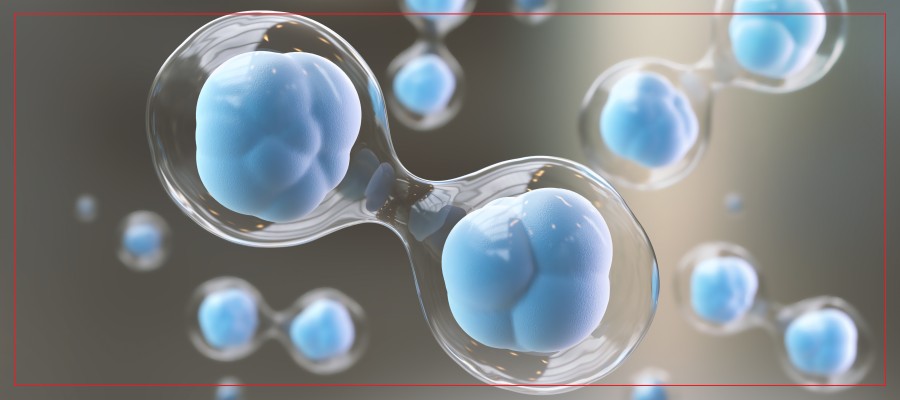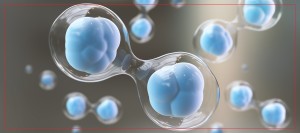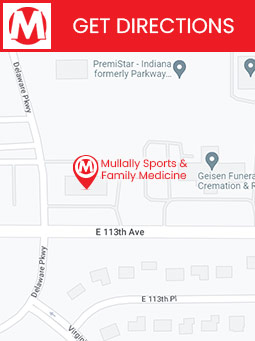Benefits of Cellular Therapy Q&A
Cellular Therapy is an innovative treatment that uses the body’s regenerative cells to promote healing and tissue regeneration. At Mullally Sports & Family Medicine, Dr. Timothy Mullally and the medical staff use this therapy to reduce inflammation, improve mobility, and accelerate recovery, offering a natural, non-invasive alternative to surgery. For more information contact us or schedule an appointment online. We are conveniently located at 11275 Delaware Pkwy Suite A, Crown Point, IN 46307.




Table of Contents:
What conditions can cellular therapy treat?
What are the benefits of cellular therapy?
What is the success rate of cellular therapy?
How many cellular therapy sessions are required?
At Mullally Sports & Family Medicine, we are committed to staying at the forefront of medical advancements to offer our patients innovative and effective treatment options. Cellular therapy, a promising area in regenerative medicine, aligns with our mission to provide comprehensive care for both sports-related injuries and family health conditions.
Cellular therapy has shown potential in treating a variety of medical conditions, particularly those involving tissue damage or degeneration. Some of the most notable conditions that may benefit from cellular therapy treatments include:
• Osteoarthritis: Cellular therapy, particularly mesenchymal cellular therapy (MSCs), can be used to regenerate cartilage in joints affected by osteoarthritis, offering pain relief and improving joint function.
• Diabetes: Cellular therapy aims to regenerate insulin-producing cells in the pancreas, offering hope for those with type 1 diabetes, where the body’s immune system destroys these cells.
• Blood Disorders: Hematopoietic cellular therapy are used to treat blood-related conditions like leukemia, lymphoma, and sickle cell anemia by replacing damaged or diseased blood cells.
• Liver Disease: Cellular therapy may aid in regenerating liver tissue in cases of cirrhosis or liver failure.
• Autoimmune Diseases: Cellular therapy might help reset the immune system in conditions like lupus or rheumatoid arthritis, reducing disease activity.
While these treatments hold promise, cellular therapy is still under research, and results can vary depending on the condition and the type of cellular therapy used.
cellular therapy offers numerous benefits across a range of conditions. For those with joint damage, tendon injuries, or cartilage wear, cellular therapy can accelerate healing, restore function, and reduce pain, allowing individuals to recover more quickly and return to peak performance.
cellular therapy also shows great potential in treating heart-related conditions by repairing heart tissue and enhancing cardiovascular function, providing hope for patients with cardiovascular issues. Additionally, cellular therapy can help modulate the immune system, offering a promising approach for treating autoimmune disorders like rheumatoid arthritis and multiple sclerosis, reducing inflammation, and preventing further tissue damage.
By using a patient’s cells or carefully matched donor cells, cellular therapy minimizes the risk of rejection and ensures a more personalized treatment plan, tailored to meet the specific needs of each individual.
cellular therapy has shown promising results across various medical fields, with success rates generally ranging between 50% to 80%, depending on the specific condition being treated. In sports medicine, cellular therapy offers effective solutions for musculoskeletal injuries, such as cartilage defects, tendon tears, and ligament injuries, promoting healing and restoring function. For active individuals and athletes, this approach provides a viable alternative to traditional surgical interventions.
In family medicine, cellular therapy is often used to address conditions like osteoarthritis, which can impact joint health and mobility. When administered properly, cellular therapy can improve pain relief and enhance function. Personalized care is a key part of the process, with treatment plans tailored to each patient’s unique health status and treatment goals.
The success of cellular therapy is influenced by various patient-specific factors, including age, overall health, and lifestyle. Regular follow-up and tailored treatment plans are essential for maximizing results and achieving long-term benefits.
At our practice, we understand that the journey to recovery is unique for every patient. Our approach to cellular therapy is personalized, taking into account various factors to create the most effective treatment plan tailored to each individual.
The severity and complexity of a condition determine the number of cellular therapy sessions required for optimal results. Experts evaluate each case individually to create an ideal treatment schedule. Factors like age, overall health, and immune response are considered to adjust the treatment plan for the best outcomes. While some patients may experience significant improvement with one session, others might require more extensive therapy for lasting results.
For orthopedic conditions like joint degeneration or soft tissue injuries, a standard treatment plan typically involves multiple sessions over several weeks or months, maximizing the benefits of cellular therapy. In cases requiring more aggressive intervention, intensive programs with increased frequency or higher doses of cellular therapy may be recommended, tailored to the individual’s specific needs. To maintain the benefits and prevent condition progression, ongoing maintenance sessions are often suggested as part of a long-term care strategy.
Mullally Sports & Family Medicine specializes in cellular therapy, offering the latest evidence-based treatments. We emphasize regular monitoring and follow-up care to ensure optimal results for your health and well-being. Contact us or schedule an appointment to explore how cellular therapy can benefit you! We are conveniently located at 11275 Delaware Pkwy Suite A, Crown Point, IN 46307. We serve clients from Crown Point IN, Winfield IN, Schererville IN, St. John IN, Cedar Lake IN, Munster IN, Lowell IN, DeMotte IN, as well as other Northwest Indiana locations.

Check Out Our 5 Star Reviews


Additional Services You May Like

Additional Services You May Like
- Acute and Chronic Illness
- Annual Wellness Exams
- Concussion Management
- Lab Testing
- Medical Weight Loss Management
- Primary Care
- PRP Injections
- Regenerative Cell Therapy
- Same Day Sick Visits
- Shockwave Lab
- Actinic Keratosis
- Allergy Care
- Botox for Migraine
- Cosmetic Skin Treatment
- Cyst Removal
- Ear Wax Removal
- EKG
- Flu Shots
- Fracture
- Immunizations
- Laceration Repairs
- Moles
- Molluscum Contagiosum
- Mullally Medspa Services
- Nebulizer Treatment
- Nutrition And Exercise Management
- Pregnancy Testing
- Pulse Oximetry
- Respiratory Care
- Skin Tag Removal
- Spirometry
- Strep and Flu
- Surgical Clearance
- TB Testing
- Ultrasound Guided Injections
- Warts
- Women’s Health
- X-Ray
- EPAT Therapy
- EMTT Therapy
- Pediatrics



